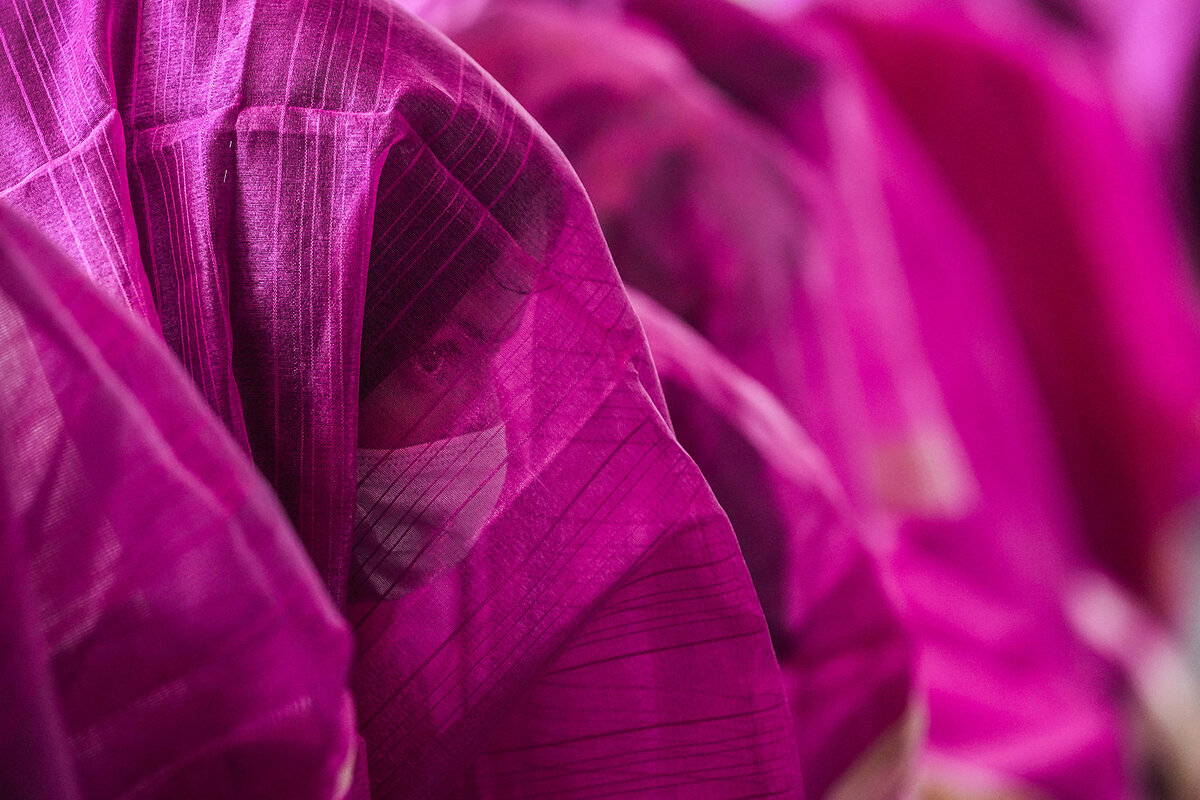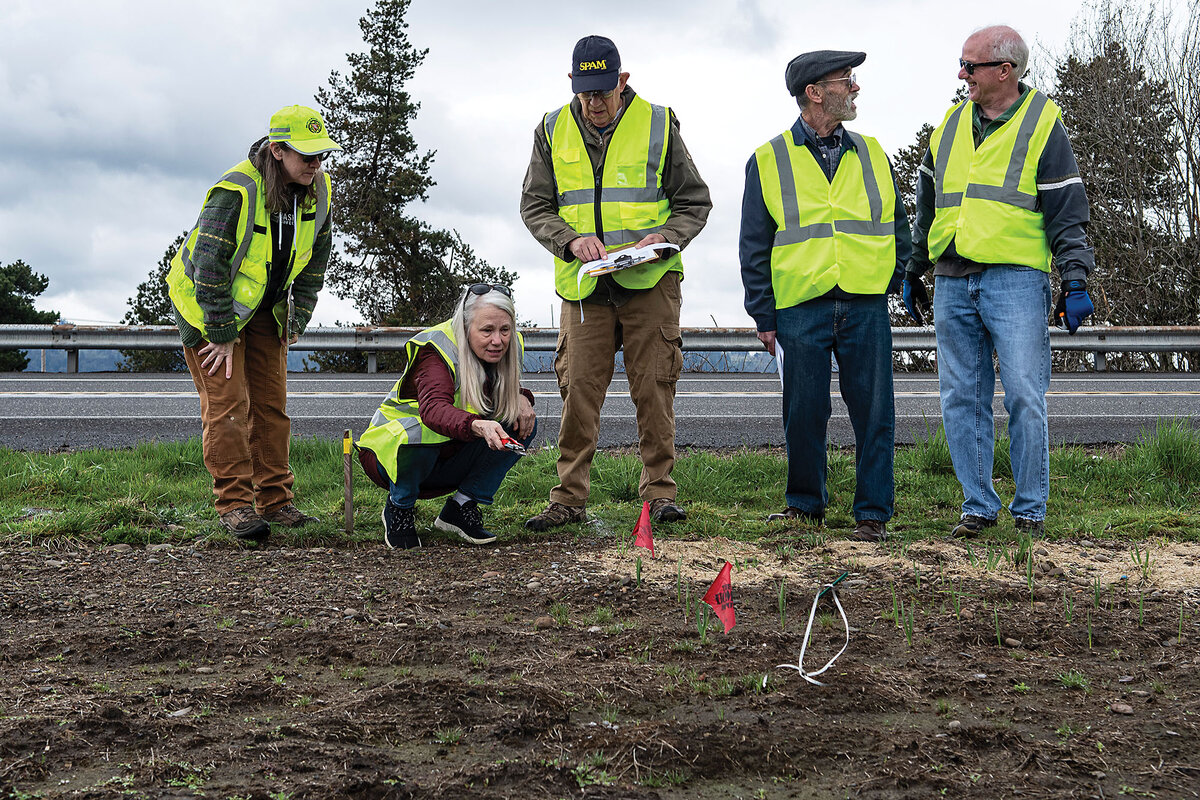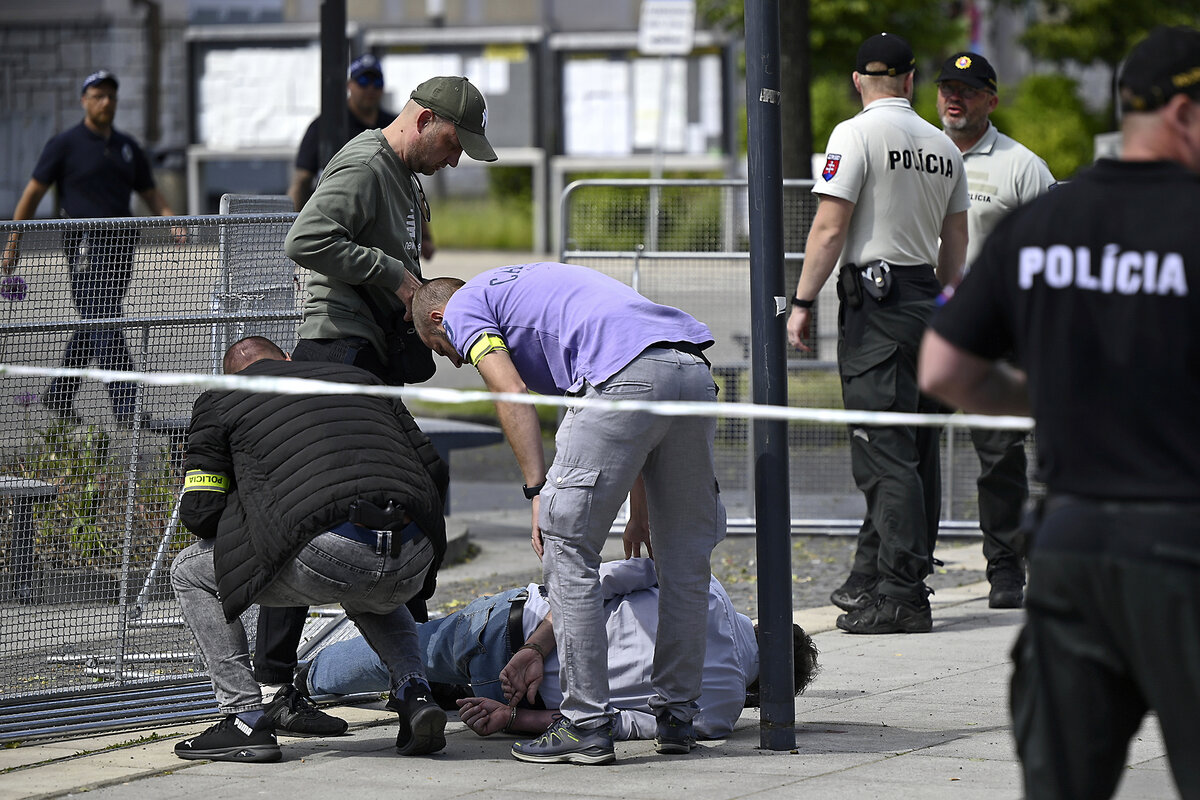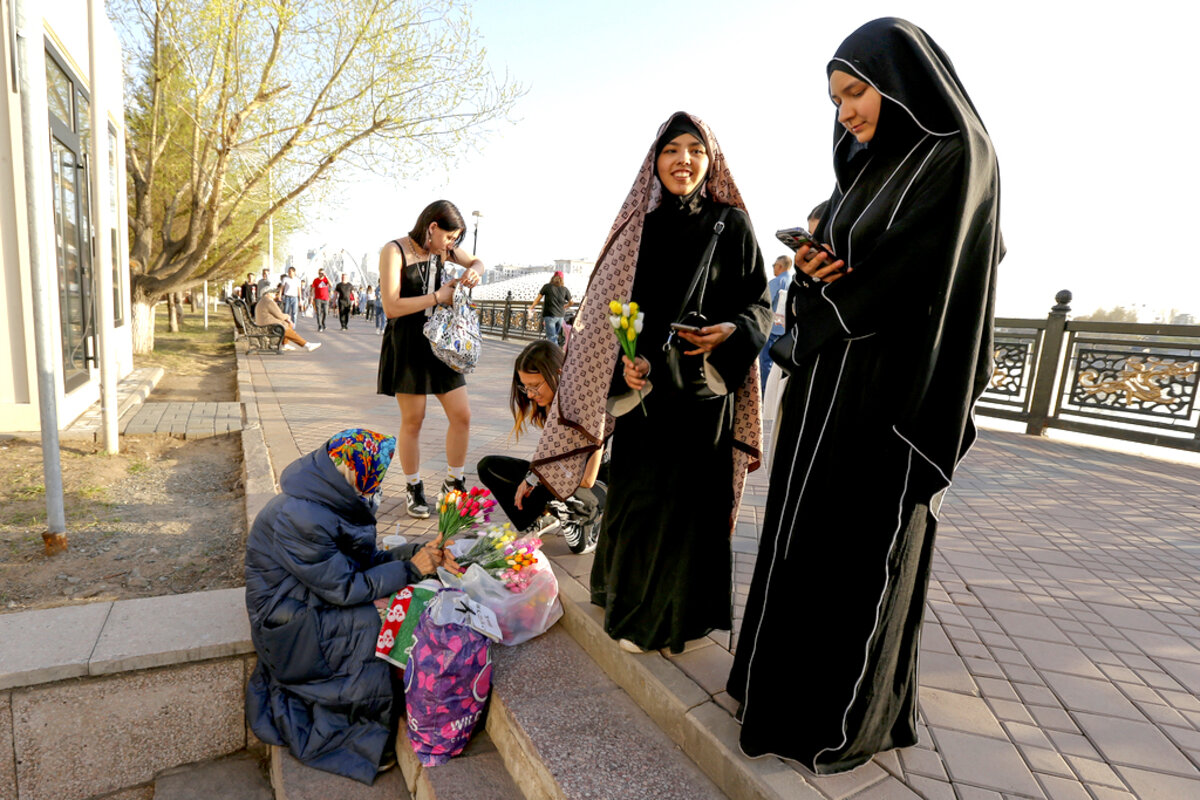It’s an old story: The nation is politically divided. But one U.S. community is trying to rebuild civic trust one volunteer at a time.

Why is ���Ǵ��� Science in our name?
Our name is about honesty. The Monitor is owned by The First Church of Christ, Scientist, and we’ve always been transparent about that.
The church publishes the Monitor because it sees good journalism as vital to progress in the world. Since 1908, we’ve aimed “to injure no man, but to bless all mankind,” as our founder, Mary Baker Eddy, put it.
Here, you’ll find award-winning journalism not driven by commercial influences – a news organization that takes seriously its mission to uplift the world by seeking solutions and finding reasons for credible hope.
Explore values journalism About usAlready a subscriber? Log in
Already have a subscription? Activate it
Ready for constructive world news?
Join the Monitor community.
SubscribeMonitor Daily Podcast
- Follow us:
 Clayton Collins
Clayton Collins
Trust doesn’t always come easy. It can come to those who choose to build it.
Stephen Humphries and Alfredo Sosa collaborated on a story that’s a tale of traffic cones and trash bags. More deeply, it’s about respect, purpose, and a shared sense of home – all humbly aimed at healing the kind of community division that feels pretty common today. If there’s a “poster story” for our ongoing project, Rebuilding Trust, this is probably it.
“These volunteers don’t put a high premium on power, status, or money,” Stephen says. As one social-trust tracker told him, “‘The relationships are the riches.’”
Already a subscriber? Log in
Help fund Monitor journalism for $11/ month
Monitor journalism changes lives because we open that too-small box that most people think they live in. We believe news can and should expand a sense of identity and possibility beyond narrow conventional expectations.
Our work isn't possible without your support.
Today’s stories
And why we wrote them
A deeper look
( 14 min. read )
Today’s news briefs
• Abortion drug bill: Louisiana lawmakers approve a first-of-its-kind bill that would classify two abortion-inducing drugs as controlled and dangerous substances.
• Macron lands in New Caledonia: French President Emmanuel Macron lands in the Pacific island for a day of talks on deadly riots triggered by a contested electoral reform.
• New York moves on migrants: The city steps up efforts to push them out of its overwhelmed shelters by enforcing a new rule limiting some adult asylum-seekers to a month in the system.
• Ecuador violence: President Daniel Noboa declares a new state of emergency in seven of the country’s 24 provinces and one area of another province, citing a rise in violent deaths and other crimes.
• WNBA heads north: Toronto awarded the women’s pro basketball league its first franchise outside the United States. The expansion team is set to begin play in 2026.
( 6 min. read )
When political vitriol stirs violence, how does society get the temperature back down? That’s a question Europe is struggling with right now amid a wave of attacks on politicians, including the prime minister of Slovakia.
( 5 min. read )
When soldiers are lost on the battlefield, whether fatally or through capture, it leaves unanswered questions back home. Some go to great lengths to answer those questions, and bring closure and relief.
( 6 min. read )
A House committee’s substantive hearings this month stand in stark contrast to the grandstanding and partisan fights elsewhere in Congress – and have shed new light around a highly politicized issue.
Books
( 3 min. read )
Looking for a great new book to kick off the summer? We have 10 of them, from tales of redemption to explorations of nature. Our reviewers have your summer reading covered.
The Monitor's View
( 2 min. read )
Since late March, much of Eurasia from Armenia to Mongolia has been transfixed by a court case of a former top official in Kazakhstan who killed his wife. On May 13, the man was sentenced to 24 years in prison. Not only was his violent action caught on camera, but the trial was also livestreamed – a first in Kazakhstan – for millions to watch.
More than two-thirds of Kazakhs followed the trial over six weeks. Even a famous Russian TV news presenter was in the courtroom, writing on social media that a “quiet revolution” was taking place in Kazakhstan, a country of some 20 million at the heart of Eurasia.
In a region not strong on women’s rights and equality before the law, the trial of Kuandyk Bishimbayev, once a member of Kazakhstan’s political elite, had an impact even before the guilty verdict. The legislature passed a law – widely known as “Saltanat’s Law,” for the first name of Mr. Bishimbayev’s wife – that criminalizes domestic violence. The law takes effect June 15.
In another sign of progress in a largely patriarchal society, both the judge and the prosecutor were women. “Family and domestic violence is a pressing problem,” prosecutor Aizhan Aimaganova told Tengrinews. “I hope that after this trial, women will realize that going to law enforcement is not useless.”
An estimated 80% of women of working age in Kazakhstan have been victims of domestic abuse. Only 2 out of 10 survivors ever file a case against their offenders.
The slain wife’s brother, Aitbek Amangeldi, told Nikkei Asia that the trial has changed public attitudes, “that is to say, that violence is now becoming unacceptable to society.” According to two scholars writing in Foreign Policy, the trial snapped the people of Kazakhstan “out of their despair and has become a symbol of hope that the law can lead to justice – not just be used by the government to repress dissent.”
Just over half of countries have comprehensive laws addressing domestic violence, according to the World Bank. In Kazakhstan, the trial has not only changed the law but has also led President Kassym-Jomart Tokayev to admit the high level of violence against women and girls – and the need for further work to end it.
“Everyone should be equal before the law,” he said last November after the killing of Saltanat Nukenova. “A just Kazakhstan is a country where law and order triumph.”
A ���Ǵ��� Science Perspective
Each weekday, the Monitor includes one clearly labeled religious article offering spiritual insight on contemporary issues, including the news. The publication – in its various forms – is produced for anyone who cares about the progress of the human endeavor around the world and seeks news reported with compassion, intelligence, and an essentially constructive lens. For many, that caring has religious roots. For many, it does not. The Monitor has always embraced both audiences. The Monitor is owned by a church – The First Church of Christ, Scientist, in Boston – whose founder was concerned with both the state of the world and the quality of available news.
( 4 min. read )
In the face of recent flooding around the world, each loving thought for the people and areas affected is a healing prayer in support of efforts to rebuild.
Viewfinder

A look ahead
Thanks for reading. Come back tomorrow, when we’ll take that community theme global. The West Bank village of Farkha, with its communal philosophy and success in self-sufficiency, is keeping afloat. But residents say that amid occupation and war, it takes more than a village.








